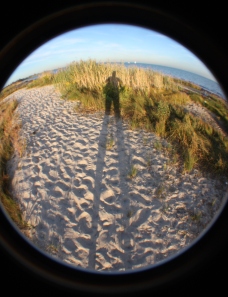It has recently come to my attention (thanks Mom!) that I have no idea what I want to do with my life. There, I’ve said it. I had inklings of this purposelessness when relatives or friends asked me about the type of job I’m looking for (“Uh, I dunno, something with writing and, uh, helping people”) but for the most part I’d been able to ignore the lack of direction in my life. Sure, it made my job hunt rather difficult when I didn’t actually know what type of work I was looking for, but things have a habit of falling into place, right?
And while I now feel comfortable with the idea that I need to just pick a direction and go instead of sending out two resumes a month to my dream jobs, this was not the case a few days ago.
You see, it all started earlier this week after I spent a morning at my local library conducting another job search. I was feeling jazzed about the potential tutoring positions I had found in Washington D.C. (because why not?) but my mom didn’t quite seem to share my enthusiasm. As she pressed me for further details about the openings I had researched, I flopped face-first onto a leather couch in our living room next to the ironing board where she was pressing the wrinkles out of my dad’s work shirts. After mumbling a few answers into the couch cushions I sensed my mom putting down the iron and picking up another shirt.
“Now, I’m not trying to be facetious or anything” she said, as the iron exhaled a puff of steam, “but do you have any idea what you want to do with your life?”
And that was when it appeared: one of those black clouds that hangs over your head to signal the dreaded what-am-I-doing-with-my-life-funk, which in my experience can last anywhere from a few hours to multiple weeks. So partially out of spite, and partially because I didn’t have an answer, I laid there silently until I got up a few minutes later and did the most adult thing I could think to do:
I got on my bike and ran away from home.
Call me delusional but I thought maybe, just maybe, taking my Black Cloud by surprise would deaden its effect. Unfortunately, I quickly discovered it’s not the sort of weather pattern you can escape by simply sneaking off on your bike, even if you are tearing around the suburbs at top speeds of six or eight miles per hour.
Fine, I thought logically, maybe I can’t out-bike this funk. But there’s no reason I can’t hide from it. And you know what? I really did make a valiant effort to fall off the face of the earth, at least for a few hours. Because after my ten minute dash to a local park, I locked up my bike and began to follow a well-pounded path to the beach. I thought maybe I could lose myself in the forest and the ocean-side reeds, but those pesky thoughts of my directionless future just would not take the hint.
Another ten minutes on foot and I arrived at the shore. In my experience at this particular park (read: I once watched my brother sink up to his knees in low-tide mud) I removed my beat up blue Vans rather than risk losing them to the muck. I began to trudge through the sand, squish across the mud and, when I was lucky enough, cross the marshy canals on a plank of driftwood left by some thoughtful beachcomber who came before me.
 After I picked my way through various sea grasses and narrowly avoided getting a piece of sea glass lodged in my foot, I came to a small river that I eagerly forded and, plopping down dramatically on the sand, heaved a sigh of relief. I had finally arrived at the island my younger brother and I discovered a few years ago, a secluded beach where we had seen decaying signs of human life but never another flesh-and-blood human amidst the scores of swallows and egrets.
After I picked my way through various sea grasses and narrowly avoided getting a piece of sea glass lodged in my foot, I came to a small river that I eagerly forded and, plopping down dramatically on the sand, heaved a sigh of relief. I had finally arrived at the island my younger brother and I discovered a few years ago, a secluded beach where we had seen decaying signs of human life but never another flesh-and-blood human amidst the scores of swallows and egrets.
As I sat staring out at the bay I suddenly realized I didn’t even know what I was doing there. I wasn’t sure if I had fled for the beach as a means of ignoring my purposelessness, or if I had hoped the beach would create the sort of tranquil environment that I imagined might be conducive to discovering one’s purpose in life.
Dammit! I thought. Not only am I wandering around completely purposeless, I don’t even know how to be properly angsty about my purposelessness! I turned this conundrum over in my mind and, as I dug my heels into the sand, decided I wouldn’t leave until I’d resolved the issue and found my purpose.
A few minutes into my brooding, though, a beautiful seashell caught my eye and I obviously felt the need to wander over and inspect it. I actually became quite preoccupied with rinsing the sand out of my shell and attempting to poke out the rotting remnants of whatever used to live in there, thus ending any pretense of further soul-searching that day. Besides, the sun was setting, the  park would close at dusk and an army of sand-fleas had launched an attack on my bare ankles and feet. As I pedaled the familiar route back to my house, I couldn’t help but think that no matter how existentially lost I feel right now, there’s comfort in the fact that I always seem to know the direction home.
park would close at dusk and an army of sand-fleas had launched an attack on my bare ankles and feet. As I pedaled the familiar route back to my house, I couldn’t help but think that no matter how existentially lost I feel right now, there’s comfort in the fact that I always seem to know the direction home.
No way, I mentally scolded myself. That is damn cheesy. Don’t even think about ending a blog post like that.



